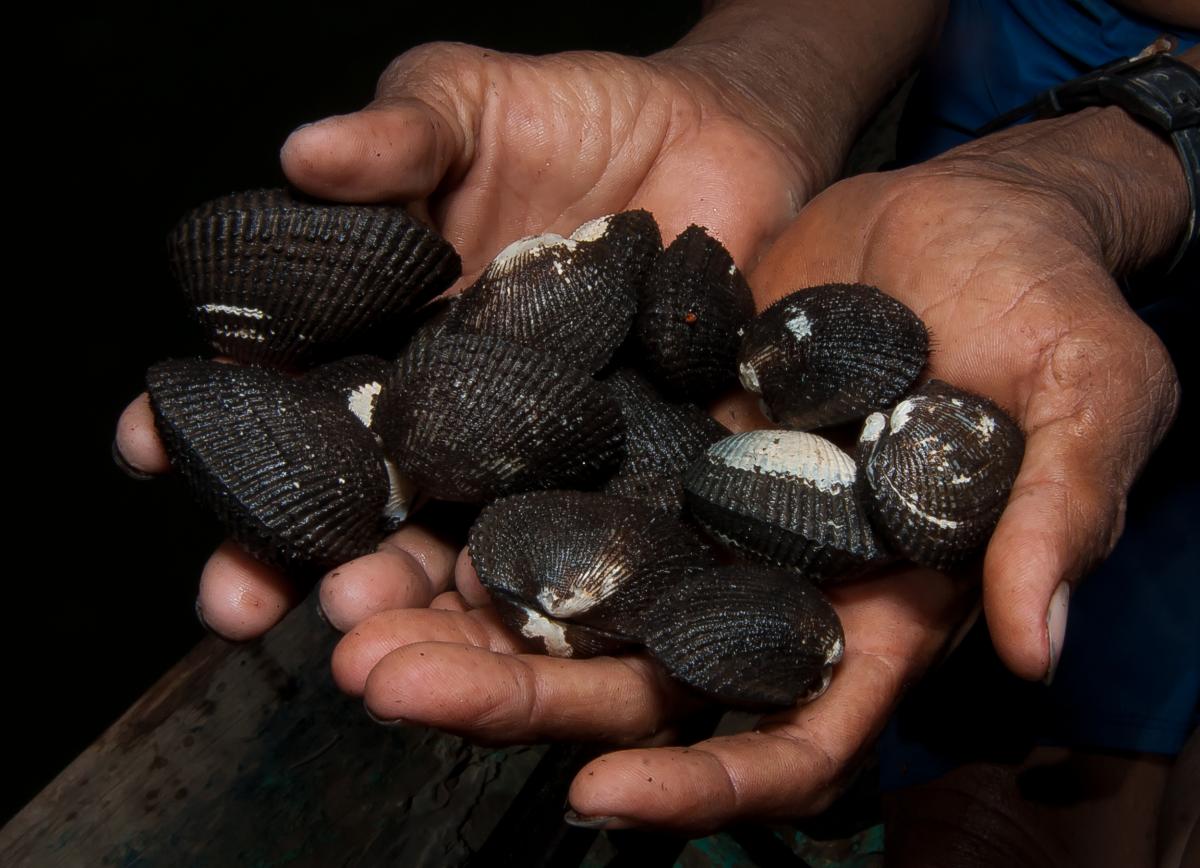On March 19th, Hivos joined Earth Hour from South America. Instead of turning the lights off, the intention was to shine a bright light on an urgent matter and invite thousands of people to take a virtual tour of the mangroves of the region’s Pacific coast. We are talking about the harvesting of black cockles, one of the region’s most important types of commercial mollusk.
Throughout generations, mangrove communities in Colombia, Ecuador and Peru have used this resource to ensure food and economic security, and today it is threatened by overexploitation. Increasing gastronomic demand and wood extraction from the mangroves have worsened the situation.
In 2013, Hivos together with partner organizations launched a project aimed at strengthening community organizations that harvest black cockles in Colombia, Ecuador and Peru’s mangroves. The initiative focused on knowledge sharing, training, and increasing advocacy capacity, as well as community control to ensure the mangrove’s sustainability and food security for local families. This project was supported by the European Union.
Since then, black cockle harvester organizations have become stronger and more standardized in all three countries. In Peru, local organizations backed by this initiative have developed alliances with state institutions for the monitoring, control and conservation of this natural resource. They developed a production module of lab cockle larva and launched a food security fair in the region of Tumes, which has turned into a government-supported event.
Community rights to access mangrove concessions were supported in Ecuador, base organizations were strengthened and alliances were created with autonomous governments. Incomes of collector families have increased and local governments have included cockle repopulation initiatives within their public policies.
In Colombia, organization and community council strengthening has led to the consolidation of various community natural resource management proposals. Many local awareness campaigns have had a positive impact as well.
On March 19th, people reflected on this and other environmental matters all over the world within the context of the Earth Hour campaign promoted by the WWF. Hivos pursues a green economy in which individuals mostly produce energy locally and small farmers have access to large markets, where the poorest do not bear the brunt of climate change and where plant and animal species whose economic value is not immediately apparent are protected. A green economy is a fair economy that has no expiry date.
Read this news item in Spanish.




